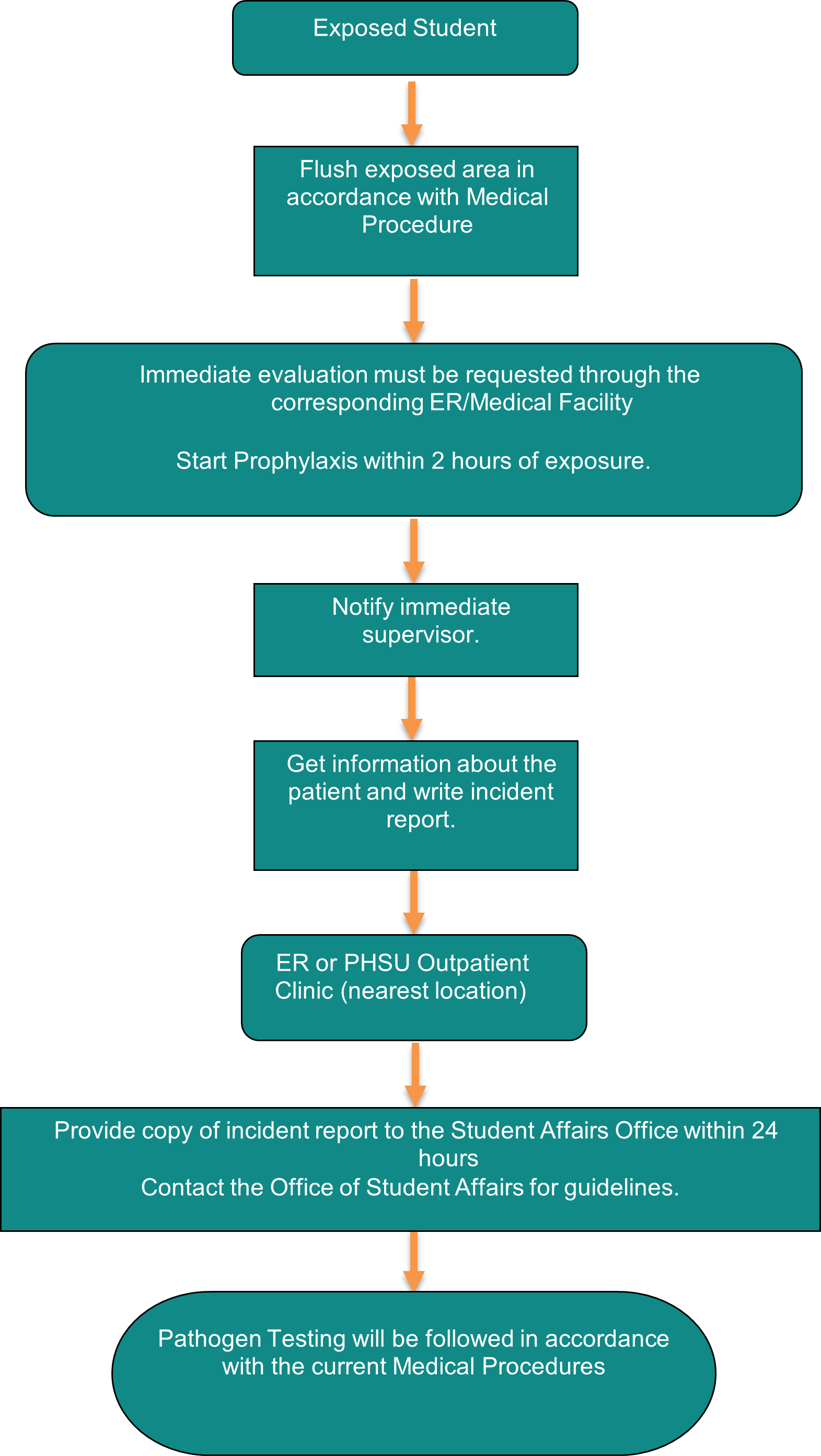|
School of Medicine Policy Manual
|
This policy is tied to LCME Element 12.8
|
BLOODBORNE PATHOGEN EXPOSURE POLICY
|
Implementation Date/ Effective Date
|
~July 2001
|
|
Last Reviewed/Update
|
July 19, 2023
|
|
Approved by
|
–
|
|
Initially Approved
|
~2001
|
Purpose
To establish a uniform system to report and manage persons sustaining exposure to blood or other body fluids via needle stick, percutaneous injury, mucous membrane, or contact with non-intact skin while involved in a scheduled clinical clerkship, research activity, or during any curricular or extracurricular activities sponsored by Ponce Health Sciences University (PHSU)
Policy
Student(s) sustaining exposures should immediately flush the exposed area with water.
If at an Affiliated Hospital, an immediate evaluation must be requested through the corresponding Emergency Room (ER). If at a community clinic or extra-curricular activity sponsored by PHSU, the student must request an immediate evaluation at Ponce Health Sciences University Outpatient Clinics during regular hours or an Affiliated Hospital ER after hours, indicating his/her status as a medical student. Immediate prophylaxis (within two hours of exposure) must be instituted following the CDC guidelines.
The student must report the incident to the immediate supervisor as soon as possible. In the case of an Affiliated Hospital, the student will notify the Clerkship Director or Attending Physician. Attending Physicians must be notified in case of exposure during a community clinic rotation or extra-curricular activity sponsored by PHSU. The Clerkship Director and/or the Attending Physician are responsible for notifying the Office of Student Affairs so that the student is provided appropriate care and follow-up. The notification must be immediate or within the next 24 hours after the incident.
Students who have been exposed to a potentially infectious body fluid during extracurricular activities are responsible for obtaining demographic data of the source such as the complete name, physical address, phone number, and related illnesses, and submitting an incident report with the patient’s information to the Office of Student Affairs. The Office of Student Affairs will handle this information confidentially.
In case of exposure in an affiliated hospital, the student will fill out the appropriate incident report as required by the hospital. This will be done after the student has received emergency care. The name and medical record number of the patient involved in the exposure must be documented in the incident report. A copy of the incident report must be filed at the Student Affairs Office by the next working day.
The Office of Student Affairs will coordinate the follow-up on the incident through the PHSU Outpatient Clinic or Medical Facility/affiliate Hospital to ensure that the student receives the appropriate evaluation, treatment, and follow-up services and for identification of other possible needs such as counseling and health insurance coordination.
The student and/or his/her medical insurance are responsible for all payments and co-payments related to the medical care of the incident.
All HIV testing and information processing will adhere to applicable Federal law regarding the Confidentiality of HIV-related Information.
The student will continue regular clinical activities unless excused from patient contact by the health care provider. The student will be responsible for completing the time lost by coordinating with the Chair of the Department where the exposure occurred.
PHSU is committed to offering students ample information and education regarding methods of prevention of infections.
Procedure in the case of a needlestick injury:

|